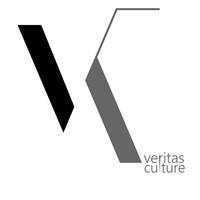
Do you offer a certification in facilitation? We can accredit your certification as meeting our strict standards and competencies, and that mark of distinction will set your courses apart from competitors.
Benefits:
The Power of INIFAC Marketing
-
INIFAC will list your course on our website.
-
INIFAC will promote your course on our social media pages.
-
INIFAC will promote your training course to our Partners In Facilitator Development.
A Mark of Distinction
-
Having your course certified through INIFAC assures your participants the highest level of competencies and credentials in the industry.
Certification Discounts
-
If your participants decide to certify through INIFAC, they will be offered a discount because they took your training course.
Certification Accreditation is designed specifically for organizations that provide facilitation training.
The purpose of this program is to provide a confirmation and independent assurance that your certification provides the knowledge, resources, practice sessions and modeling that demonstrate what a person using the highest level of facilitator skills needs to know and how a person using that highest level of facilitator competencies needs to work.
Culture Facilitation Certification: Veritas Culture
Veritas Culture is the foremost industry expert in facilitating Culture and Diversity-to-Belonging-focused dialogue. They have been by-name requests to facilitate in response to national level incidents such as the George Floyd murder, the Kavanaugh Confirmation, and the Charlottesville Race Riots. Additionally, they have performed over 200 culture and diversity-to-belonging assessments across private sector, non-profit, and government entities.
Veritas has taken their experiences and developed a transformative program that combines facets of traditional facilitation with modern and trauma informed approaches to facilitation.
Additionally, Veritas’ facilitation certification courses have been approved by the International Institute for Facilitation (INIFAC) and International Coaching Federation (ICF). To the former, INIFAC is the oversight body that has approved Veritas to certify Culture Facilitators and Diversity-to-Belonging Facilitators. To the latter, ICF has approved Veritas’ facilitation courses for continuing education credits for ICF certified coaches.
Outside of these credentials and recognitions, instructors for Veritas Cultures’ facilitation certification courses are Certified Master Facilitators, Certified Diversity Executives, former Directors of Inclusion, Former Culture Executives, and former Diversity Executives.
Applicants for the Culture Facilitation Certification or Diversity-to-Belonging Facilitation Certification are not required to take a Veritas Culture training course. By applying for the certification, applicants are agreeing to participate in a two-part exam process.
Part 1 of the exam process is facilitation. More specifically, applicants are required to demonstrate their ability to facilitate Culture or Diversity-to-Belonging-focused dialogue in a realistic setting. Applicants can demonstrate this ability in one of two ways.
- Participate in a Veritas Culture facilitation training course in which all students are required to facilitate on multiple occasions throughout the course.
- Take an extended verbal exam. (See below for more information)
Part 2 of the exam process is a verbal exam that will be administered by Veritas Culture staff. This exam will be inclusive of (10) scenario-based questions that test an applicants’ ability to a) facilitate difficult and nuanced discussions and b) respond to difficult and nuanced situations. Each question is worth up to 17 points. More specifically, Veritas exam proctors will be scoring the applicants responses to each question on a scale of 1-to-17. This means that applicants can get a maximum of 170 points for the verbal exam.
For those who have not participated in a Veritas Culture Facilitation training course, the exam will also include a 10-minute facilitation by the applicant based on a scenario created by the Veritas Culture proctor. This exercise is worth up to 30 points. More specifically, Veritas exam proctors will be scoring the applicants overall facilitation capability on a scale of 1-to-30.
Applicants can receive up to 200 total points and must score at least 170 out of 200 points to be (85%) certified.
Applicants who do not receive the necessary 85% will be required to retest.
The Certification Coaching Session is available to applicants who wish to get coaching from Veritas Culture staff. There are several reasons why someone may choose to opt for the coaching option.
- They have not taken a Veritas Culture course and just want to have a deeper discussion about Culture and Diversity-to-Belonging facilitation.
- They have been a lifelong facilitator and want to better understand techniques and approaches to facilitating on the fly.
- They have taken a Veritas Culture course and want coaching before taking the exam – this to shore up on some areas based on in-class feedback they received.
The Certification Coaching Sessions will be with Veritas Culture facilitation experts who are also trained coaches.
Diversity-to-Belonging Certification: Veritas Culture
EXPLORE
Do you have a diversity-to-belonging culture problem?
What is the state of your diversity-to-belonging culture?
UNDERSTAND
What are the root issues behind your diversity-to-belonging challenges?
RESOLVE
What are the root solutions to your diversity-to-belonging challenges?
How do we ensure sustainable positive movements?
The course and certification focus on developing practitioners who are adept at facilitating dialogue in a way that:
- Illuminates authentic thoughts and feelings
- Helps people make connections between what they say and what they mean
- Moves groups from disagreement and division to understanding and respect
- Reveals root concerns and solutions
All without the traditional use or centering of agendas, ground rules, or pre-session planning.

